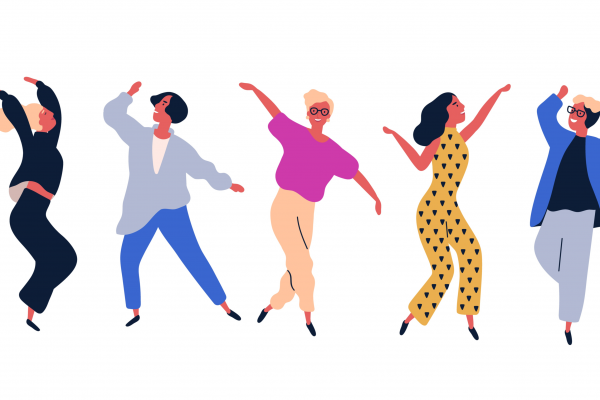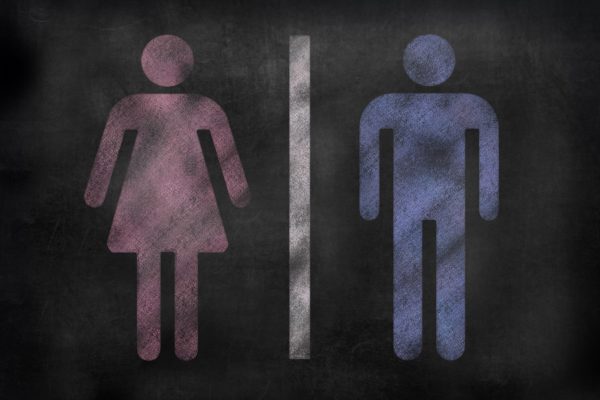Imposter Syndrome is a phrase that is prevalent today. It’s the phrase we all relate to but sometimes don’t admit to. Is it as stifling as we make out or has it become a label? An excuse to justify why we’re not where we want to be?
Sistr was joined this week by 3 experts in their fields who discuss their knowledge and experience of imposter syndrome.
Zoe Clews – Founder and Hypnotherapist at Zoe Clews & Associates.
Sarah Porter – Founder and CEO, InspiredMinds and World Summit AI.
Sangeeta Pillai – Founder of Soul Sutras.
A psychological pattern in which an individual doubts their skills, talents or accomplishments and has a persistent internalised fear of being exposed as a “fraud”. Despite external evidence of their competence, those experiencing this phenomenon remain convinced that they are frauds, and do not deserve all they have achieved. Individuals with imposterism incorrectly attribute their success to luck, or interpret it as a result of deceiving others into thinking they are more intelligent than they perceive themselves to be. While early research focused on the prevalence among high-achieving women, imposter syndrome has been recognised to affect both men and women equally. (Wikipedia)
Zoe explains that imposter syndrome is rife and coming to the surface more and more. The more successful you become, the worse it can be. What you feel inside can be so very different to what you project on the outside.
Let’s take it right back to birth. We are born blank slates. And yet, often through no fault of our own we go through negative experiences, some more severe than others. Trauma can be anything, no matter how big or small. Perhaps it’s a one-off episode or prolonged bullying, heartbreak, not being fully met emotionally by parents, failure at something? We also go through adverse experiences as an adult.
If we go through these negative experiences up to the age of 9, we split off from who we are. This creates the ‘collapsed self’, a state in which an individual’s sense of self is reduced “to the confines of a particular set of largely implicit and automatic beliefs about self and others and the behaviours that ordinarily express them” (Bertram D. Cohen, Ph.D). This is us at our most vulnerable and the full complexity and richness of self in everyday life is lost during the collapse.
The collapsed self turns to feelings of ‘I’m not good enough’, ‘I’m unworthy’, ‘I must be defective’. At this moment the super ego or inner critic rears its head. We find ourselves in a position of comparison. ‘Why is my life not as good as theirs?’ ‘Why am I not as successful as them?’ Social media plays a huge part in the vicious comparison cycle.
The collapsed self is full of shame, self doubt, a desire to want to hide authentic feelings from others. We don’t want society to see the full picture so we put on a mask. The pressure to be perfect becomes overwhelming so the mask goes on and the message of “I’m going to be perfect and successful” is the message seen by the outside world. It is this face – the masked face – that the outside world responds to.
The masked face shows a successful, polished, confident, in control individual striving for greatness. The outside world will believe in the masked face, you’ll be received with positive regard, no consideration will be made for what actually goes on behind the mask. And this is where imposter syndrome steps in – we are responding to life with what we feel inside; people are responding to us with what they see on the outside.
Sarah refers to imposter syndrome being prevalent in both herself and her industry. As the only female Board member in a tech company, Sarah was always in the minority peer group. It was easy to make comparisons with others and conclude that she didn’t belong. Stereotyping was a common occurrence which would fuel the already niggling doubts in her head about her place in a male-dominated tech world. After falling out with a company, Sarah decided that if she couldn’t change the system, she’d create a system that exemplified what the ethos and standpoint of the tech world should be; an equal arena, a level playing field.
“You don’t belong here” is a phrase that still haunts Sarah and yet she has adopted coping mechanisms and methods to calm the inner critic.
Sangeeta’s experience of imposter syndrome can, she says, be attributed to both personal and cultural factors. Sangeeta grew up in the slums of Mumbai with an alcoholic father and an abusive childhood. Her feelings of unworthiness are prevalent, as a South Asian woman, you are simply not allowed a voice. It was her ‘cultural baggage’ that inspired Sangeeta to set up Soul Sutras, a platform that allows “all bad betis and besharam bibis” to express themselves openly, freely and without shame or fear. Her platform seeks to smash the taboos of topics such as sex, periods, mental health, a space to openly tell the story you want to tell.
How do we hack imposter syndrome? What methods can we turn to to smash the voice out of our heads?
Acknowledge and know that we have parts of ourselves that aren’t perfect. And that’s ok. They are feelings, not beliefs and it’s ok to be vulnerable. It’s easy to retreat into a mindset of ‘I’ve got to be perfect’ and this propels us into thinking we need to achieve more and more. Zoe refers to integration and understanding as being a huge part of the healing process. Accept that it’s ok not to be perfect, it’s simply not possible to be perfect.
Work through negative trauma. The subconscious doesn’t understand time. It doesn’t grasp the concept that if something happened 20 years ago we should by now, have recovered from it. The beliefs we came to of ourselves still stand and affect what we do so it may be important to address them. Heal what we’ve gone through. Realise that when you’re in a collapsed place, you don’t have to rush back to feeling good.
Acknowledge what you’ve achieved. When the inner critic pops up questioning your validity, challenging your worthiness, write down all your achievements. Write down everything and read it to that inner voice. It’ll soon pipe down.
Recognise when the inner critic pipes up. Some label it, Sarah calls it her ‘inner claw’. Face it head on and ask it what’s the worst that can happen. Create a fear setting whereby you play out in your mind what could possibly go wrong. And then ask yourself, is the worst really that bad? Then face that inner voice head on and give it a talking to, get angry with it, talk it down, smash it out of the park. And as Zoe says, tell it:
Not today Satan! F*ck off!
Visualise your environment, the environment that you’re doubting and fearful of. If you’re heading to a conference with thousands of delegates or a meeting with 1 other person, the environment can be equally petrifying. Visualise what music you’ll have playing if you’re walking onto a stage. What will the coffee taste like when you’re sitting in your meeting? What do you think the look on people’s faces will be when you are presenting? Knuckle down into the detail and it’ll transport you into the smaller, but equally important details.
Have a cup of tea with your feelings. If a friend came to you feeling rubbish, you’d make them a cuppa, chat through their fears and offer them words of wisdom. Do this with yourself. Make yourself a cup of tea, sit down and give yourself a break. Pep talk yourself up and self-parent. What would you be saying to your child/friend? Say it to yourself loud and clear.
Distinguish between whether challenges thrown at you by others are challenges you genuinely need to listen to, acknowledge and act on, or whether you are merely challenging them and their mindset. Take a step back and look at your purpose. Step away from yourself as an individual and ask yourself why you’re doing what you’re doing. The more visible you are, the more criticism you’ll receive. But tell yourself this; you’ve chosen a path to make an impact, to create purpose, to inspire a vision. Give yourself permission to be powerful and your voice will allow and inspire others to find theirs.
Imposter Syndrome – so very pertinent, so very real and so very common. But let’s collectively try and overcome this together. Let’s be our own biggest cheerleader. Let’s be each other’s biggest cheerleaders. So go forth. Follow your intuition, embrace your dream, believe in yourself and fly with the wind because life is for living.














